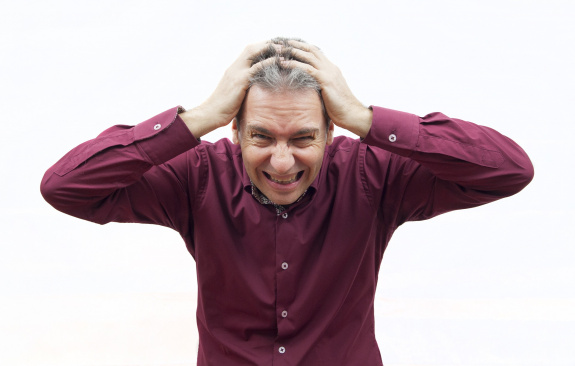Q&A: How Sleep Reduces Stress
First and foremost, it is important to know how stress works to understand why sleep can reduce stress.
What is stress?
Basically, stress is a response from your nervous system when you are pressured or threatened. It is your body's way of helping you when you are in a stressful situation. During the primitive times, stress helps humans fight or flee when in danger.
What are the causes of stress?
The situations that cause stress are called stressors. They can be external, internal, negative, or positive - depends on your perception towards a situation.
What are external and internal stressors?
External stressors are caused by your surroundings - house, school, work, relationships, money problems, traffic and the like.
Internal stressors are caused by your own thoughts such negativity, insecurity, inability to accept failure, overthinking, high expectations, worries, and the like.
What are negative and positive stressors?
Not only negative situations can stress you out. Positive situations like having a baby, marriage, and the like can also cause stress.
What are the things that influence your stress level?
You could be very stressed or just a little. Your level of stress depends on:
- Your outlook on life
- Physical health
- Support network
- Number of responsibilities
(The degree to which you believe that events are stressful leads to insomnia. Ability to roll with life's punches People who thrive on the excitement of a high-stress lifestyle.
Stress and Your Body
What happens inside your body?
Your body releases the stress hormones such as adrenaline, cortisol, and norepinephrine.
What happens to you when stress hormones are released (symptoms)?
|
Physical Heartbeat is faster |
Behavioral Nail biting |
Emotional Anger |
What are the positive and negative effects of stress?
You get tense, nervous, on the edge but at the same time:
- Focus is enhanced
- Surge of energy
- Pumped up
- Increased alertness (Your senses become sharper)
- Increases your strength and stamina
- Speed up your reaction time
Helping you to either flight and fight when in danger.
However, your body isn't supposed to be in this state for a long period of time otherwise your body won't be able to recover back to its normal state which can be detrimental to your health, your emotions, behavior, social interactions, sleep and overall quality of life.
If stress becomes chronic, how does it affect you overall (emotionally, physically and behaviorally)?
Chronic stress disrupts several body functions that it results in several types of health problems. Common health problems associated with chronic stress:
|
Emotional Depression and moodiness (unhappiness, agitation, moodiness, irritability, anxiety, anger, loneliness) |
Physical Pain of any kind (aches and pains) |
Behavioral Eating more or less |
How can sleep reduce stress?
Lack of sleep causes stress, while stress also interferes with sleep. The relationship between stress and sleep is a vicious circle.
Stress is caused by your brain's perception towards a situation. Once your brain perceives a situation as stressful, the body reacts releasing your stress hormones.
You can follow the experts 4As advice (Avoid, Alter, Adapt, Accept) to reduce stress or you can sleep to recharge your brain and repair your body after a stressful situation.
After a stressful day, sleeping is an obvious way to recharge yourself and remove all the stress in the process. When stressed, some people fall asleep easily while others couldn't. In this case, we recommend following the tips below on how you can sleep faster and better.
What are other ways to reduce stress aside from having enough sleep?
- Attitude (Learn how to relax)
- Get moving
- Treat your body well
- Positive outlook in life (Change your perception/mindset on the situation)
- Build positive relationships
- Your knowledge and preparation
- Try mindfulness techniques (Turn off your thoughts)
- Identify your stressors
- Avoid the stressors
- Learn to adapt to situations
- Accept that some things are not in your control
- Medication

